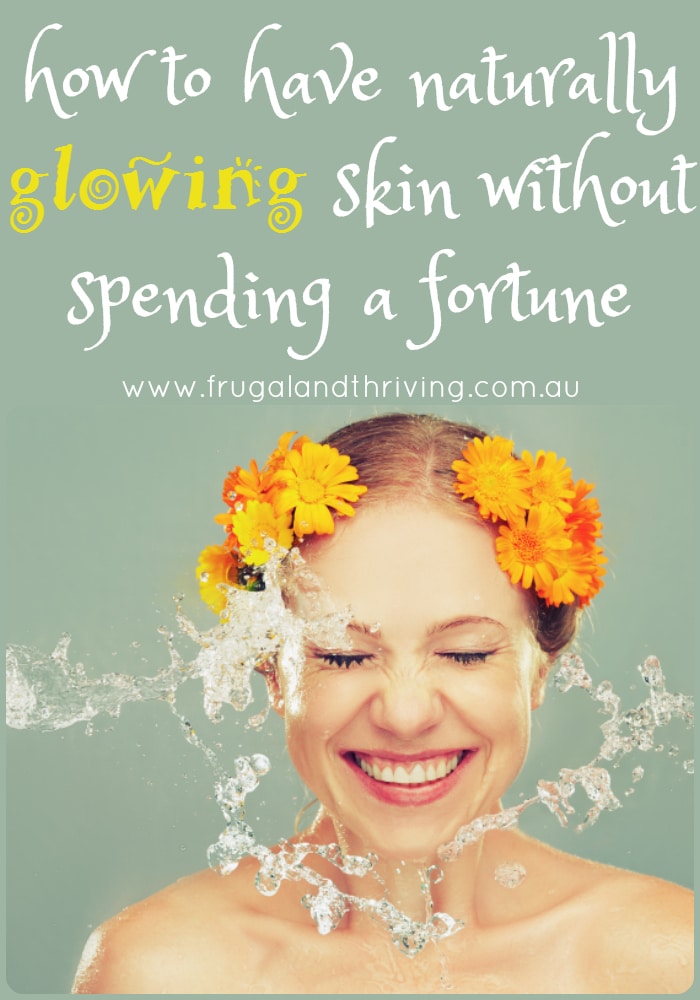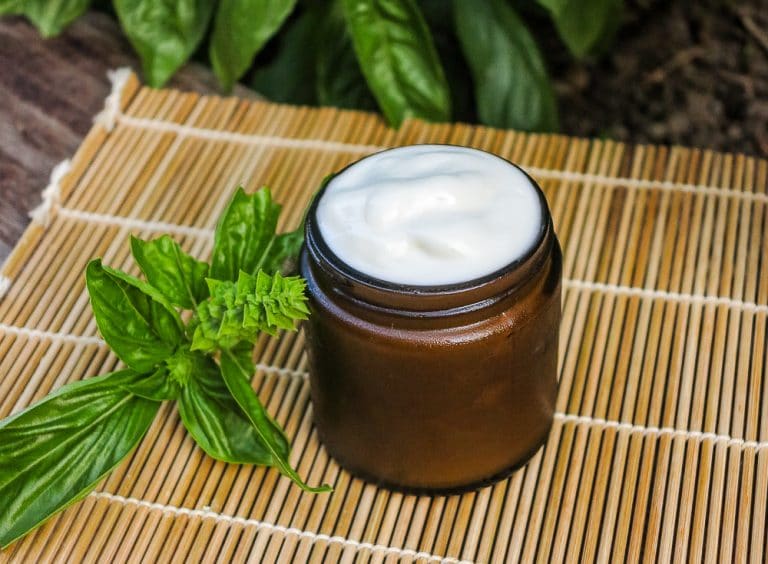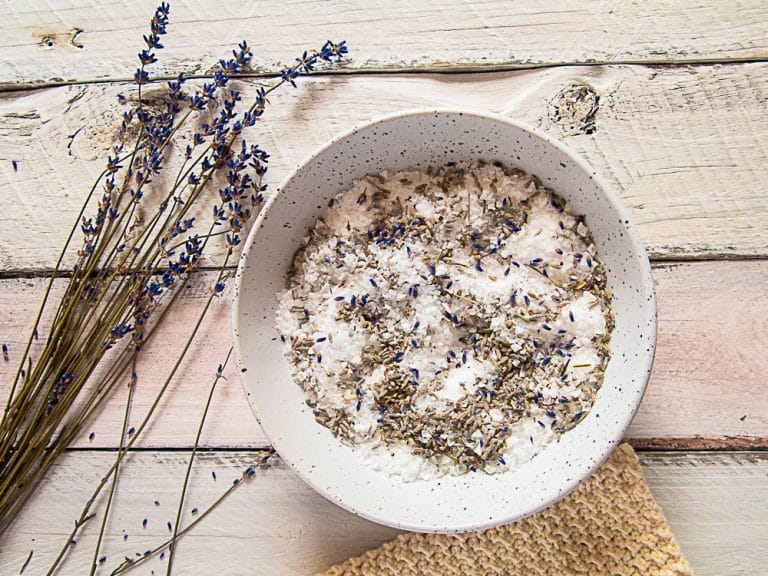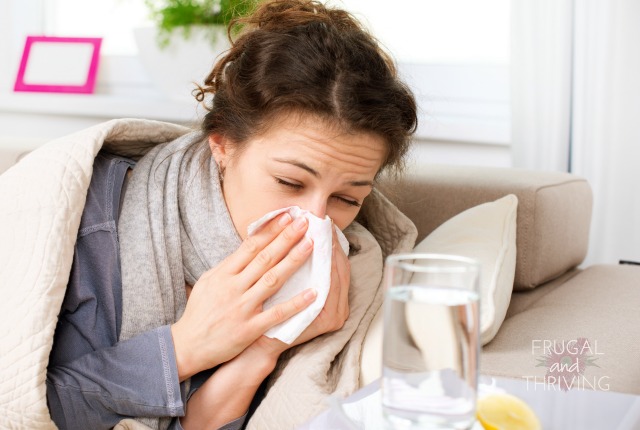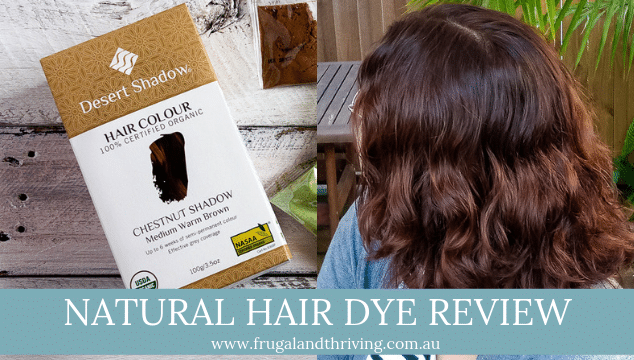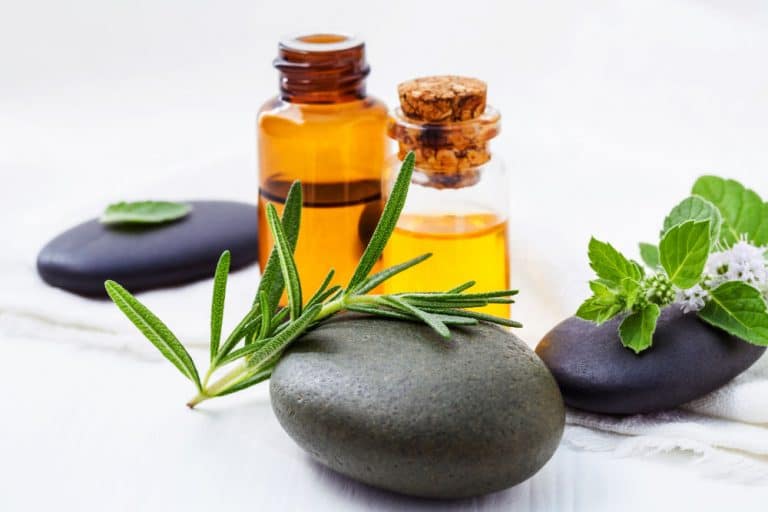How to Have Naturally Glowing Skin Without Spending a Fortune
This website may earn commissions from purchases made through links in this post.
Nine tips on how to have naturally glowing skin without spending a fortune on expensive skincare products.
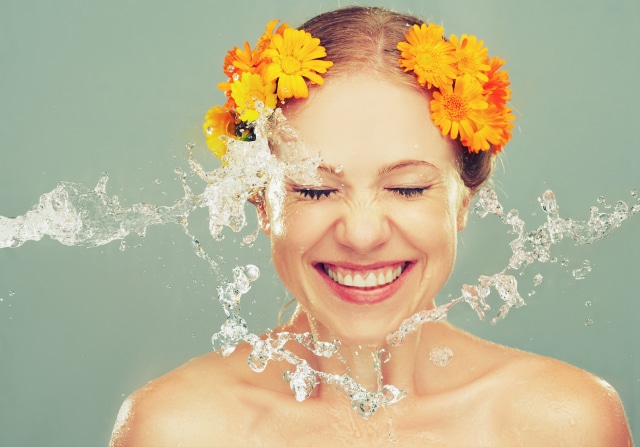
You don’t need to spend a fortune on fancy skincare products to improve the look and vitality of your skin.
Healthy skin starts on inside and finishes with a simple skincare routine to keep your skin glowing and clear.
Here are nine tips to get naturally glowing skin frugally and naturally.
1. DRINK ENOUGH WATER FOR GLOWING SKIN
Your skin, like any other organ in your body, needs water to function properly. Does drinking water improve your skin’s appearance? The jury is out on that one as this study exemplifies. However, avoiding dehydration can impact skin appearance.
Avoiding dehydration will make your skin look plumper, moister and healthier. On the other hand, dehydration can make skin look dry, dull and sallow!
Skin is made up of cells and skin cells (like any other cell) are made up of water – around 60% of the body’s water is intracellular. Adequate hydration will ensure your cells function at their optimum and will also help flush out toxin build up in the body, which can show up as skin problems.
So how much should you be drinking?
There’s no hard and fast rule. Trust your body and listen to your thirst. The temperature, your activity level, what else you’ve been eating and drinking will all impact on how much water you need.
You want to aim for enough to ward off dehydration, but there’s no point overdoing it because drinking “extra” water isn’t going to make any difference to your skin. And of course, drinking too much water can be fatal.
2. EAT A BALANCED DIET OF WHOLEFOODS
The first signs of ill-health or ‘dis-ease’ in the body will manifest in the skin and can be a reflection of poor diet.
A diet full of fresh fruit and vegetables, whole grains, nuts, legumes and lean meats will help keep skin looking great.
Fruit and vegetables provide essential antioxidants – the well know anti-aging ingredient for your skin. Rather than slapping expensive stuff from a bottle on your skin, feed your skin cells more effectively from the inside out.
There is some suggestion that consuming dairy can have a negative impact on skin, although the jury is out. It may help some people with acne problems to quit dairy.
Digestion can impact your skin appearance, specifically constipation. Slow digestion can cause pimples and dull skin. Healthy digestion relies on sufficient amounts of water, lots of fresh fruit and vegetables and pre and probiotics.
3. Eat Good Fats for Healthy Skin
Fat is an essential part of the diet. It not only keeps skin supple, it carries fat-soluble vitamins, keeps cell walls strong, and helps maintain proper hormone function (and we all know the link between hormone fluctuations and pimple outbreaks). Good fats are those found in nature like in nuts and olive oil and avocados.
A study conducted by the Institute of Experimental Dermatology in Germany found a significant improvement in skin appearance after taking flaxseed oil. It’s an interesting side note that flaxseed oil is a known remedy for constipation.
Bad fats are trans fats and vegetable oils high in omega 6. These fats can cause inflammation in the body, which not only affects the look of your skin but your overall health. These fats may also increase the occurrence of acne.
4. EAT LESS SUGAR
Collagen is a protein in the skin that gives skin it’s youthful look. Simple, refined sugars attack collagen and elastin, weakening or destroying it.
So in order to maintain healthy skin, eat less simple sugars. You will find these in soft drink, baked goods like biscuits and bread, added to tea and coffee, commercial cereals, commercial sauces, junk food… in other words, stick to a mostly whole food diet.
5. Be Sun Smart To Avoid Skin Damage
Excessive sun exposure can prematurely age the skin.
Protect your skin when out in the sun by wearing a hat and a good sunblock or sunscreen. If you can avoid direct sunlight during the hottest parts of the day or when the UV indicator is high, all the better.
I prefer the natural sunscreen (these provide a UV barrier, often with zinc, rather than chemicals penetrating your skin and screening out UV rays), but use what suits you. The downside to natural sunscreens is that they can be greasy and the zinc can give you a pale look.
Be aware that sunscreen alone won’t protect your skin from damage. Wear a hat, stay in the shade and avoid the sun when it’s at it’s hottest.
However, some sun directly on the skin is essential for good health (and good skin) because it’s where we get Vitamin D. Early in the mornings and later in the afternoons are good times to get your Vitamin D without getting the damage.
6. DRINK LESS CAFFEINE AND ALCOHOL AND QUIT THE CIGGIES
Caffeine and alcohol can dehydrate the skin. If you’ve ever spent the night at the pub, you will know that one look in the mirror the next morning will attest to this.
Caffeine and alcohol have also been linked to an increase in acne.
Of course, there’s nothing good about cigarettes, but when it comes to your skin, they cause premature skin wrinkling.
7. GET YOUR BEAUTY SLEEP
While we are sleeping, the body is actively repairing and regenerating cells, making new collagen and boosting blood flow to the skin, so for healthy skin cells, you need plenty of healthy, good quality sleep.
Lack of sleep can also increase stress hormone levels in the body which can lead to inflammation and poor skin (not to mention poor health). It can also reduce the skin’s ability to stay hydrated.
8. AVOID CHEMICAL SKINCARE PRODUCTS
Mainstream skincare products are full of chemical ingredients that may bad for your skin and health. Using natural products will help you avoid potentially harmful chemicals.
A simple, natural cleanser is sufficient for cleaning your skin, particularly if you have oilier skin. Or you could try cleaning your skin with oil, which surprisingly, actually works really well, even with oily skin.
One of the best places to get natural skin care products in Australia is Nourished Life, an online store with a huge range of natural cosmetics at various price points.
You can also make your own skin products fairly easily – Natural New Age Mum recently shared her recipe for an organic face wash, and you can find a recipe for a natural body butter here. I often put a little plain shea butter in the palm of my hand and mix it with a drop or two of oil like jojoba for a quick and easy ‘homemade’ moisturiser.
Finally, your kitchen is a treasure trove of natural ingredients for a frugal facial (there’s also a link all about using oil as a cleanser).
9. A SIMPLE SKIN ROUTINE FOR GLOWING SKIN
While spa treatments are always nice, a simple daily skin routine will keep your skin looking fresh and clear.
Start by cleaning your skin with a gentle natural cleanser each day, making sure to remove all makeup each night.
If you have oily skin, you might want to follow up with a gentle toner like witch hazel.
Finish up with a good natural moisturiser to lock in moisture.
For really glowing skin, exfoliate once or twice a week to remove dead skin cells. You can use oatmeal as a simple scrub, or damp sugar. Or you can invest in a natural exfoliator to smooth and brighten your complexion.
The old adage that beauty is skin deep isn’t quite true – for beautiful skin, you need to work from the inside out.
Beauty isn’t found in a bottle. Not surprisingly, all of the suggestions are about overall good health as well as good looking skin – our skin reflects our health and is often the first sign that something’s not quite right in our body.
